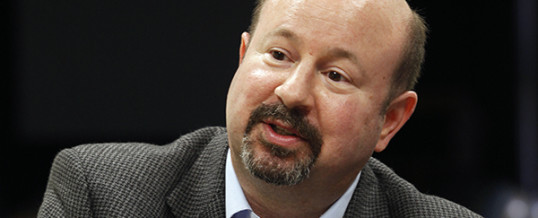“The Hockey Stick and the Climate Wars: The Battle Continues”
SAVE THE DATE!
Friday, March 20, 2015 | 4:00-5:00 p.m. | The Lyric Theatre | Blacksburg, Virginia
The Interfaces of Global Change Program at Virginia Tech is proud to host Dr. Michael Mann for a science communication workshop and public lecture on Friday, March 20, 2015. Dr. Mann is an award-winning climate scientist and central figure in the political debate over climate change. His lecture at the Lyric Theatre will be followed by a brief Q&A session and book signing.
READ THE VT NEWS PRESS RELEASE HERE
[hr]
ABOUT
Dr. Michael E. Mann is a Distinguished Professor of Meteorology at Penn State University, with joint appointments in the Department of Geosciences and the Earth and Environmental Systems Institute (EESI). He is also director of the Penn State Earth System Science Center (ESSC).
Dr. Mann received his undergraduate degrees in Physics and Applied Math from the University of California at Berkeley, an M.S. degree in Physics from Yale University, and a Ph.D. in Geology & Geophysics from Yale University. His research involves the use of theoretical models and observational data to better understand Earth’s climate system.
Dr. Mann was a Lead Author on the Observed Climate Variability and Change chapter of the Intergovernmental Panel on Climate Change (IPCC) Third Scientific Assessment Report in 2001 and was organizing committee chair for the National Academy of Sciences Frontiers of Science in 2003. He has received a number of honors and awards including NOAA’s outstanding publication award in 2002 and selection by Scientific American as one of the fifty leading visionaries in science and technology in 2002. He contributed, with other IPCC authors, to the award of the 2007 Nobel Peace Prize. He was awarded the Hans Oeschger Medal of the European Geosciences Union in 2012 and was awarded the National Conservation Achievement Award for science by the National Wildlife Federation in 2013. He made Bloomberg News’ list of fifty most influential people in 2013. In 2014, he was named Highly Cited Researcher by the Institute for Scientific Information (ISI) and received the Friend of the Planet Award from the National Center for Science Education. He is a Fellow of both the American Geophysical Union and the American Meteorological Society.
Dr. Mann is author of more than 170 peer-reviewed and edited publications, and has published two books including Dire Predictions: Understanding Global Warming in 2008 and The Hockey Stick and the Climate Wars: Dispatches from the Front Lines in 2012. He is also a co-founder and avid contributor to the award-winning science website RealClimate.org. [hr_shadow]
THE LECTURE
The Hockey Stick and the Climate Wars: The Battle Continues
Dr. Mann describes this lecture:
“A central figure in the controversy over human-caused climate change has been “The Hockey Stick,” a simple, easy-to-understand graph my colleagues and I constructed to depict changes in Earth’s temperature back to 1000 AD. The graph was featured in the high-profile “Summary for Policy Makers” of the 2001 report of the Intergovernmental Panel on Climate Change (IPCC), and it quickly became an icon in the debate over human-caused (“anthropogenic”) climate change. I tell the ongoing story behind the Hockey Stick, using it as a vehicle for exploring broader issues regarding the role of skepticism in science, the uneasy relationship between science and politics, and the dangers that arise when special economic interests and those who do their bidding attempt to skew the discourse over policy-relevant areas of science. In short, I attempt to use the Hockey Stick to cut through the fog of disinformation that has been generated by the campaign to deny the reality of climate change. It is my intent, in so doing, to reveal the very real threat to our future that lies behind it.”
[hr_shadow]



 “We celebrate and honor the latest generation of Irish educators and supporters of education who today provide such incredible teaching and advice to generations of students. The Irish in essence played a huge role in the education system of the United States. There is nothing more important, something the Irish from the Famine era on down recognized. We are immensely proud to present the
“We celebrate and honor the latest generation of Irish educators and supporters of education who today provide such incredible teaching and advice to generations of students. The Irish in essence played a huge role in the education system of the United States. There is nothing more important, something the Irish from the Famine era on down recognized. We are immensely proud to present the